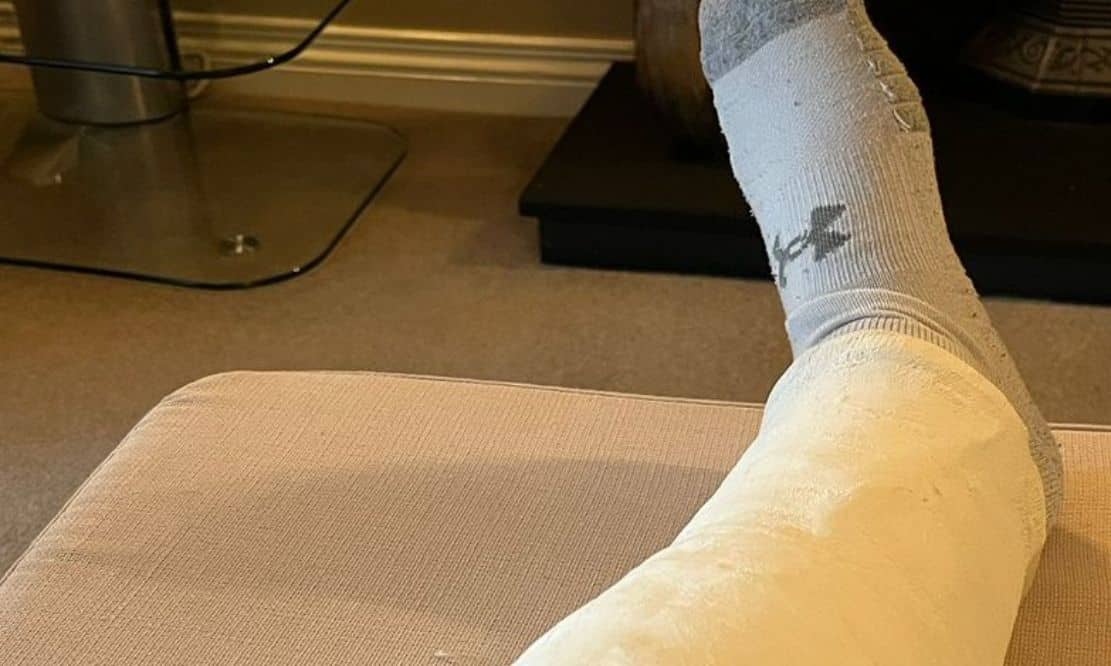
Being spat on, kicked, head-butted, punched and bitten. This is the stark nature of some of the attacks on police officers in Northern Ireland, with the number of assaults on officers reaching a five-year-high.
Assaults with injury have increased year-on-year from 516 for the period April 2018 to March 2019, to 911 for the period April 2021 to March 2022. From April 2022 to this year to date, there have been 923.
“Police officers often step into the unknown, placing their lives at risk, to protect others and that should never be taken for granted”, said Assistant Chief Constable Bobby Singleton, Head of Local Policing.
He added: “Being a police officer has always been a tough job, but being spat at and spat on, kicked, punched or bitten is not ‘part of the job.’ Our officers are sons, daughters, mothers, fathers, sisters and brothers. They are public servants, but they’re not punch bags.”
ACC Singleton described the level of violence that officers are increasingly exposed to as “disturbing.”
Just last weekend, six police officers were assaulted in Strabane, three of them female. One of these officers says during her 15 years of service she has been assaulted around a dozen times, from being spat at and kicked at. She says she’s also been threatened with violence including having glass bottles waved in her face, along with verbal abuse.
She said: “I would ask them to remember we are human beings as well. We have families too, and we’re doing our job. We don’t deserve to be assaulted.”
ACC Singleton said that “too often our officers are the focus of people’s aggression.”
He explained: “Unfortunately it’s not unique and, increasingly, we see our officers exposed to attacks, assaults and acts of violence,” he says. “We are facing a different type of demand now. It’s no longer just conventional crime that we deal with. We deal with extremely complex issues, issues around vulnerability, which we are regrettably forced into trying to resolve. In doing so, at times, officers are exposed to serious risk.”
During one week in January of this year, 43 police officers were assaulted. One of these officers sustained a dislocated knee. With six years of service, the Response officer says he’s been assaulted around a dozen times in the last three years alone. He believes there is a perception among some people that assaults on police are “part of the job.”
“I didn’t join the police to be assaulted, to break a limb or to be spat on”, he said.
An officer based in Mid Ulster recalls how what happened to her last year, in the space of 10 to 15 seconds, was enough to make her consider leaving her job.
The officer was dealing with a man arrested in relation to a road traffic collision who became violent. She says when dealing with him, he put his hands around her neck and tried to strangle her before punching her, leaving her with facial injuries. Through fantastic welfare support within the Service, and from family and friends, she says she’s made a good recovery.
“It’s a lot easier to talk about now but, at the time, I felt embarrassed as this was just a regular call,” she said. “I wanted to join the police since I was 16, but I wanted to leave after that happened. But, for all the horrible days, you get the good days too. I’m glad I stayed on.”
Assaults with injury on police officers have increased from 516 for the period April 2018-March 2019, to 911 for the period April 2021-March 2022. From April 2022 to this year to date, there have been 923. More here: https://t.co/RmnC4CnmfH pic.twitter.com/AWw0pJXBYP
— Police Service NI (@PoliceServiceNI) February 17, 2023
Another officer recalls how he was punched in the face and left with injuries requiring major dental work. Just 10 months out of the training college at Garnerville, the south Belfast Neighbourhood officer says the attitude among some people that assaults on police is ‘normal’ has to change.
Despite the unpredictable dangers officers can be faced with, ACC Singleton says: “They continue to go to work every day, do their job and take these risks to serve the community, and that must never be taken for granted. It serves to underline the remarkable job they do on a day-to-day basis.
“We, as a Police Service, will investigate their attacks rigorously, just as we would were it a member of the public. Our job is to ensure the right welfare system is in place for them when they need it. We will do all we can, and work with the Police Federation for Northern Ireland to support our officers so they’re able to deal with these situations.
“Our ask is that the role of officers, the professionalism and restraint they show in what can be really dangerous circumstances, and the work they do on a daily basis to keep people safe, is not taken for granted and that assaults on officers should never be seen as acceptable.”
Liam Kelly, Chair, Police Federation for Northern Ireland, added: “Attacks and assaults on our officers are increasing in frequency, and that is wholly unacceptable. We know of too many cases where officers were hospitalised with horrendous injuries. Some have been forced to retire through ill health. Scores of officers are unable to work as they recover at home. This means reduced levels of service to the public, which no one wants. It also places heavy pressure on colleagues who take on the additional workload.
“We have to see deterrents that make assailants think twice of spitting, biting, kicking and head-butting officers. Tougher sentencing by the Courts is urgently required.”
This is the injury sustained by one of our officers this year. Assaults on officers have reached a five-year high. This is unacceptable. Read more here: https://t.co/dAAWaNIybL @NIPolicingBoard @PoliceFedforNI pic.twitter.com/iDxzGQf25t
— Police Service NI (@PoliceServiceNI) February 17, 2023





